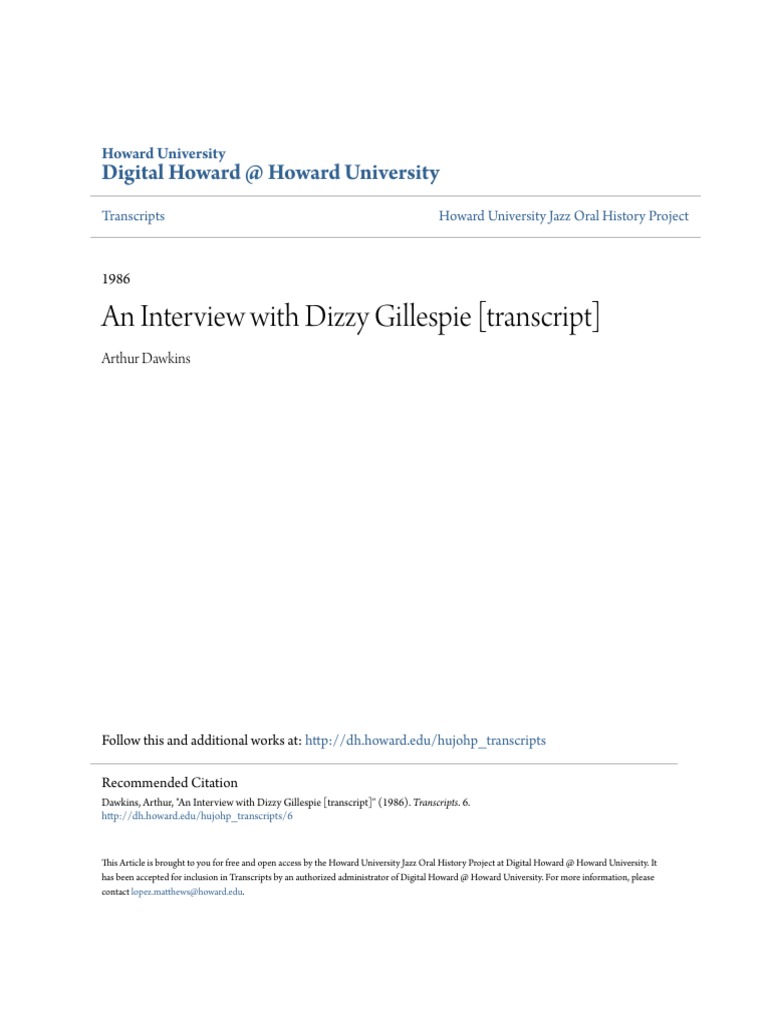The intersection of music and spirituality often reveals deep insights into the human condition. One such notable figure who exemplified this convergence is Dizzy Gillespie, a pivotal character in the history of jazz and a profound seeker of truth. Gillespie, renowned for his virtuosic trumpet skills and innovative contributions to the genre, found a life-altering paradigm in the Bahá’í Faith. This encounter not only illuminated his musical journey but also offered him— and, by extension, the world— a refreshing perspective on spirituality and humanity. In exploring Gillespie’s interactions with the Bahá’í teachings, one may uncover the transformative potential of this faith, a radiant beacon calling individuals towards unity, peace, and understanding.
At the heart of Bahá’í teachings lies the principle of the oneness of humanity. This foundational concept resonated profoundly with Gillespie, who experienced firsthand the divisions that often marred the musical landscape and society at large. The Bahá’í message asserts that despite our diverse backgrounds—be they racial, cultural, or religious—each individual is a thread in the rich tapestry of humanity. Gillespie’s work in jazz, a genre that evolved from marginalized communities, is an embodiment of this idea. Through collaboration with musicians from various ethnicities and backgrounds, he cultivated a spirit of unity expressed in the improvisational nature of jazz, which allows for a confluence of voices that harmonize rather than clash.
Another significant aspect of Gillespie’s immersion into the Bahá’í Faith was the emphasis placed on the importance of global peace—one of the core tenets of Bahá’u’lláh’s teachings. As a musician, Gillespie was acutely aware of the impacts of conflict and division, which often stifled creativity and innovation. His commitment to jazz served as a form of diplomacy; he traveled around the globe, sharing his music while implicitly advocating for harmony. The Bahá’í perspective reinforces this vision, positing that true peace must be pursued through both individual transformation and societal structures. Gillespie’s understanding and incorporation of these values into his work indisputably ignited dialogues about tolerance, understanding, and love among varied communities, thus revealing the profound interrelationship between art and advocacy.
Furthermore, Gillespie’s affinity for the Bahá’í Faith also shed light on the significance of personal transformation. The path to spiritual enlightenment, as delineated in Bahá’í doctrine, mandates an introspective journey towards self-discovery and growth. This transformative process can alter one’s artistic expression and relevance. Gillespie’s music became more than mere performance; it morphed into a conduit through which he explored deeper spiritual contexts. His compositions and improvisations began to reflect not solely his technical prowess but also the principles of love, unity, and truth espoused by Bahá’í teachings. Such a transition encourages artists to view their work as an extension of their spiritual beliefs, offering an exquisite blend of creativity and conviction.
In addition, the Bahá’í concept of service profoundly influenced Gillespie’s life. Among the faith’s teachings is the notion that one’s talents should be employed for the betterment of society. Gillespie recognized the potential of his music as a tool for social change and personal upliftment. He engaged actively in community efforts and supported causes aimed at promoting equality and justice, realizing that his responsibilities transcended his artistic career. Through various initiatives, he utilized his platform to draw attention to issues of racial inequality and injustice, embodying the Bahá’í ideal of service to humanity. This commitment not only elevated his legacy as a musician but also as a global citizen, resonating with the call for universal peace and justice.
Moreover, Gillespie’s experiences underscore the Bahá’í approach to knowledge and education. Fundamental to the faith is the belief that education is vital for the advancement of individuals and society. Gillespie’s journey exemplified this ethos; he consistently sought to expand his understanding of the world around him. His thirst for knowledge was not limited to music but broadened into social issues, philosophy, and spirituality. His willingness to engage with new ideas and teachings reflects the Bahá’í commitment to an ever-evolving understanding of truth. In an era when cultural rigidity often proliferates, Gillespie serves as an exemplar of lifelong learning and openness to diverse perspectives.
In conclusion, the repercussions of Dizzy Gillespie’s encounter with the Bahá’í Faith resonate beyond the confines of his remarkable musical career. Through his life and works, one finds a compelling narrative of unity, peace, transformation, service, and education. His integration of Bahá’í teachings into his artistic expression provides a profound invitation to reorient one’s perspective on the interplay of faith and creativity. For individuals seeking meaning and purpose beyond their vocational endeavors, Gillespie’s legacy is a powerful testament to the potential of spirituality to transcend personal aspirations, achieving a harmonious connection with the world at large. The Bahá’í Faith, with its promises of unity and enlightenment, continues to pique the curiosity of those who aspire to a life rich in purpose, engagement, and service to humanity. Hence, it stands not only as a faith system but as a harbinger of hope and change in an oft-divided world.
